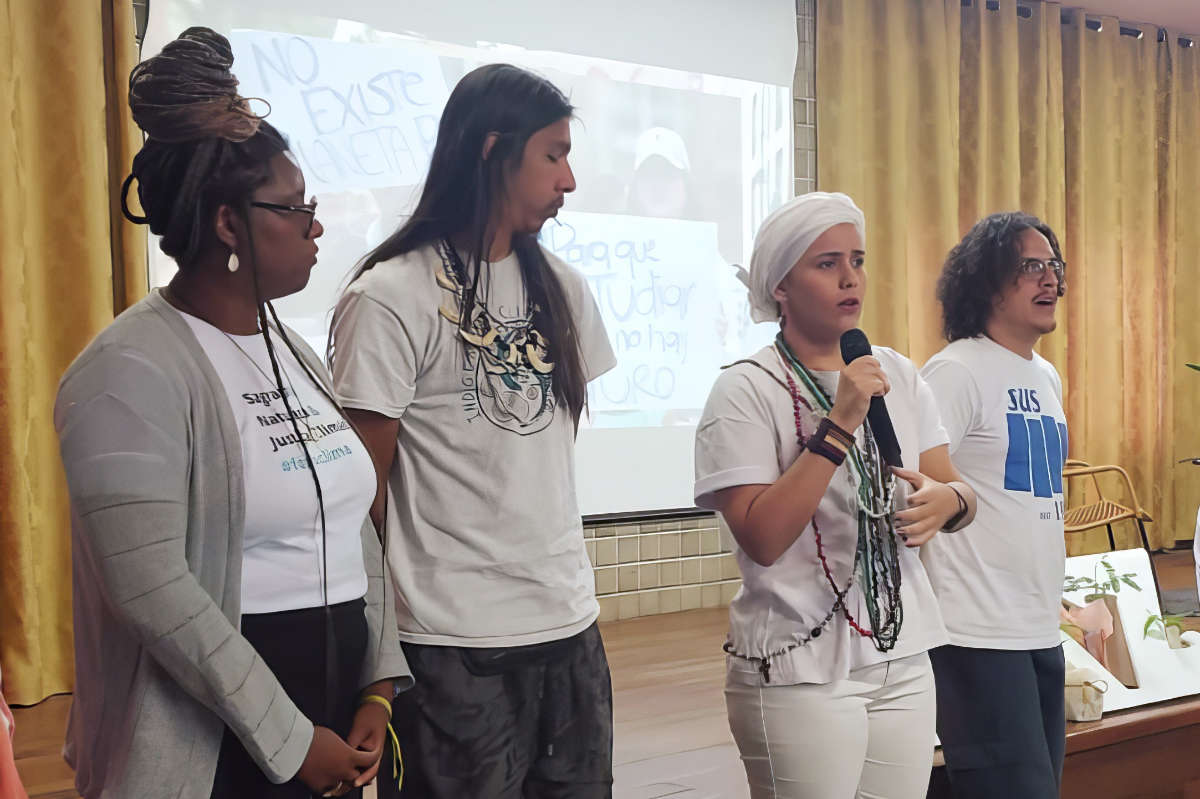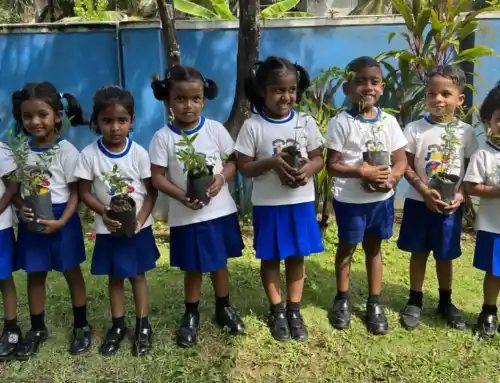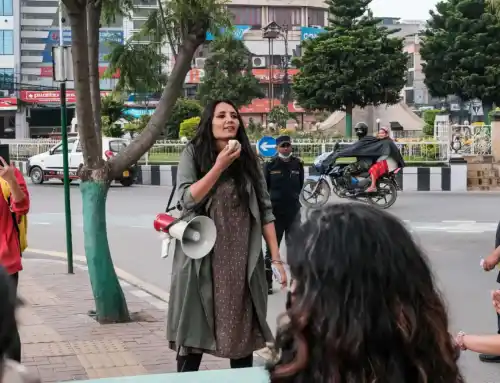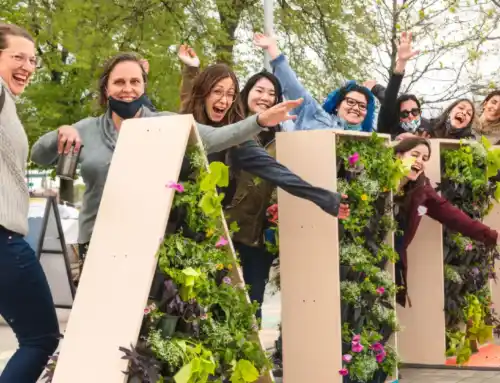STORIES
Rayana Burgos: Mobilizing faith for climate action in Brazil
Rayana Burgos is a young Brazilian political scientist working to achieve climate justice. She is Umbandista, an Afro-Brazilian religion, and believes that faith and the environment are connected, because she finds her spirituality in nature. Rayana is a Youth Climate Leaders Fellow. Her work through the Climate Parent Fellowship is strengthening conversations and dialogue on climate change between religious leaders and youth in Brazil.
I live in Recife, the 16th most vulnerable city to climate change in the world. My city faces a very challenging future due to rising sea levels and flooding. Acting to stop climate change and minimizing its effects is a matter of preserving what my city represents to me. Knowing that in the near future the city may be under water makes me sad. The city creates important memories in the lives of its residents and to stop climate change is to keep the memory of a people and its culture alive.
Until 2019, I didn’t know that I wanted to work on climate change. But that same year I experienced the second great flood of my life. I saw the water washing away pieces of houses, I saw the water invading the place where I lived. I had to spend a few days living at my grandfather’s house and my family was in anguish not knowing what level of destruction we would find in our apartment when we returned home.
I felt afraid and thought it was very unfair to experience that because I was not responsible for the problem. Fortunately, our home was okay and not too damaged, but this moment was enough to motivate me to do something for those who lost everything. I started to attend meetings at the city hall, I was in dialogue with the neighbors, I started to study the reason for the floods.
During this time, I graduated from the faculty of political science, where I was researching female representation in Latin America. I looked for courses that would help me understand environmental impacts. So, since 2020, I have been taking courses and participating in networks such as Youth Climate Leaders, which have helped me to understand the relationship between environmental disasters and social inequalities.
I saw poor people losing everything they had, while the rain didn’t paralyze rich people’s lives. It is necessary to reduce social inequalities to improve people’s resilience to climate change, and I have been working towards that.
I work directly with the climate justice agenda. I’m a consultant at a company called CLIMÁTICA, where we support organizations to make decisions based on climate and people. I represent the youth of north-eastern Brazil on the Youth Sounding Board of the European Union in Brazil. The northeast is a region that will suffer from rising sea levels, as it has a coastal zone, while the areas furthest from the center of cities will suffer from desertification. This brings very specific challenges for the biodiversity of the region and for the population.
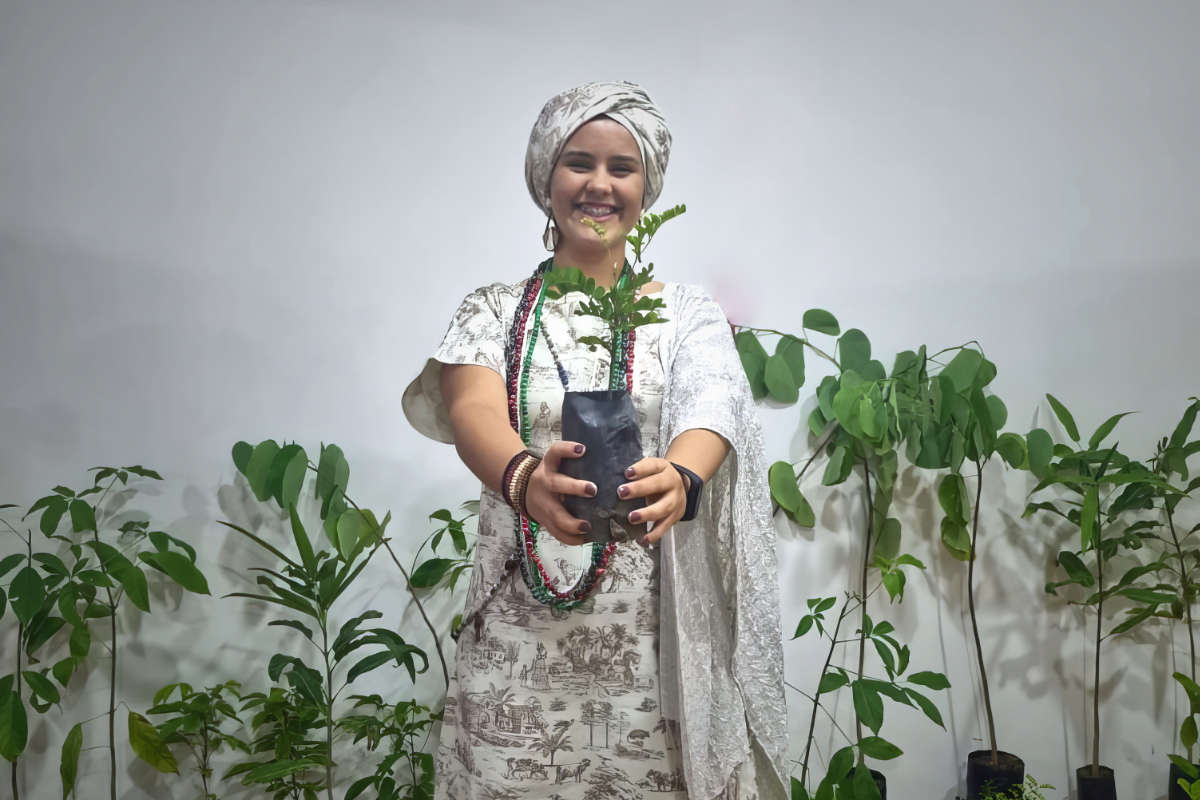
I am also part of movements that link religion with environmental activism, such as Fé no Clima (Faith on the Climate) and as part of the Climate Parent Fellowship, I have been mobilizing religious leaders for the climate and strengthening conversations between religious leaders and youth working on climate change in Brazil.
Religious institutions are great schools where we learn our values, behaviors and habits that shape our way of living. And if we learn about living in society and so many other lessons, why not speak in churches about caring for the land, sea and nature?
My project aims to make religious leaders in northeast Brazil aware of climate change so that they can pass on the lessons learned to the faithful, young people and children. If each leader engages his followers in actions that are more suitable for the environment, we will be able to unite intergenerational efforts to take care of the common home of all of us.
In Brazil, there are many groups talking about Protestants, Catholics and the environment, and very few groups talk about my religion, Umbanda. Umbanda is a religion of African origin, which arrived in Brazil through black slaves and remains to this day an important pillar of Brazilian culture. So, I decided that an important step in my project is to create and formalize a network of terreiros for the climate (terreiros are the equivalent of churches in the Umbanda religion). I want to focus on mobilizing African-based religions in Brazil for climate action, making religious leaders aware of the relationship that this religion has with the environment and creating a community of people of this religion who want to share good practices.
When my younger sister was born, my mother told me “Ray, be careful with your actions. From now on, your sister will want to do everything you do. Take the opportunity to teach her good things.” This thought of my mother is what helps me understand the need to work across the generations on climate. My sister grew up wanting to wear my clothes, wanting to play my games, and I had to teach her a lot about life. And if my role was to help her understand the world, why can’t I also help her to take care of nature?
I am very worried about leaving Recife because of the rise in sea level. There’s a question I always think about: How do I get my family and friends out of the city and into a safe place? Is there really going to be a “safe” place? Even if this chaotic scenario happens many years from now, the younger generations in my family will need to worry about it.
What gives me hope is knowing that there are so many other people who, despite being afraid, still haven’t given up. And because of them I won’t give up either. I can talk about the importance of mobilizing religion for the climate cause and this has been an incredible experience. Faith is responsible for sensitizing people and uniting them in a way that science does not. I’ve been learning to listen to stories about resilience and each person in their own way teaches me not to give up.
